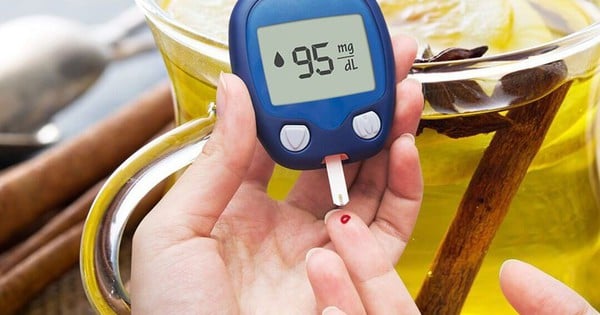Stress is a natural reaction that occurs when the body experiences certain changes or challenges in life. The heart beats faster, blood pressure increases immediately, helping us stay alert, increasing the ability to react to danger. At this time, stress is a natural reaction of the body and is beneficial, according to the health website Healthline (USA).

Chronic stress causes blood pressure to rise regularly, increasing the risk of cardiovascular disease.
However, chronic stress causes blood pressure to remain consistently high. This condition affects many different parts of the body, including the heart.
When stress occurs, the body will have the following reactions:
Increased cortisol levels
Stress stimulates the body to release the stress hormone cortisol, which causes blood pressure to rise. High levels of cortisol in the body over a long period of time will cause blood pressure to remain consistently high, contributing to high blood pressure.
Activating the sympathetic nervous system
Stress activates the sympathetic nervous system, increasing heart rate and constricting blood vessels. Repeated episodes of this can put stress on the cardiovascular system.
Endothelial dysfunction
Stress disrupts the function of the endothelium, the inner lining of blood vessel walls, leading to reduced production of nitric oxide. This reduces the ability of blood vessels to dilate. Narrower blood vessels increase blood pressure and the risk of heart disease.
Infection
Chronic stress leads to inflammation in the blood vessels. This condition causes atherosclerosis, which is the buildup of plaque in the artery walls. This plaque narrows the blood vessels, making it difficult for blood to flow and increasing the risk of heart disease.
Hyperglycemia
Stress stimulates the release of glucose into the bloodstream, providing the body with a quick source of energy to deal with an immediate threat. Chronic stress causes blood sugar to remain consistently high, leading to insulin resistance. This is a factor that leads to diabetes and cardiovascular disease, according to Healthline.
Source: https://thanhnien.vn/5-tac-dong-cua-cang-thang-khien-co-the-de-mac-benh-tim-185240927145958658.htm


![[Photo] National Assembly Chairman Tran Thanh Man meets with outstanding workers in the oil and gas industry](https://vstatic.vietnam.vn/vietnam/resource/IMAGE/2025/4/17/1d0de4026b75434ab34279624db7ee4a)

![[Photo] Air Force practices raising flag in Ho Chi Minh City sky in preparation for April 30th holiday](https://vstatic.vietnam.vn/vietnam/resource/IMAGE/2025/4/18/de7139d9965b44f8ac1f69c4981196fd)
![[Photo] Closing of the 4th Summit of the Partnership for Green Growth and the Global Goals](https://vstatic.vietnam.vn/vietnam/resource/IMAGE/2025/4/17/c0a0df9852c84e58be0a8b939189c85a)
![[Photo] General Secretary To Lam receives CEO of Warburg Pincus Investment Fund (USA)](https://vstatic.vietnam.vn/vietnam/resource/IMAGE/2025/4/18/7cf9375299164ea1a7ee9dcb4b04166a)
![[Photo] The beauty of Ho Chi Minh City - a modern "super city" after 50 years of liberation](https://vstatic.vietnam.vn/vietnam/resource/IMAGE/2025/4/18/81f27acd8889496990ec53efad1c5399)
























![[Photo] Nhan Dan Newspaper announces the project "Love Vietnam so much"](https://vstatic.vietnam.vn/vietnam/resource/IMAGE/2025/4/17/362f882012d3432783fc92fab1b3e980)
































































Comment (0)